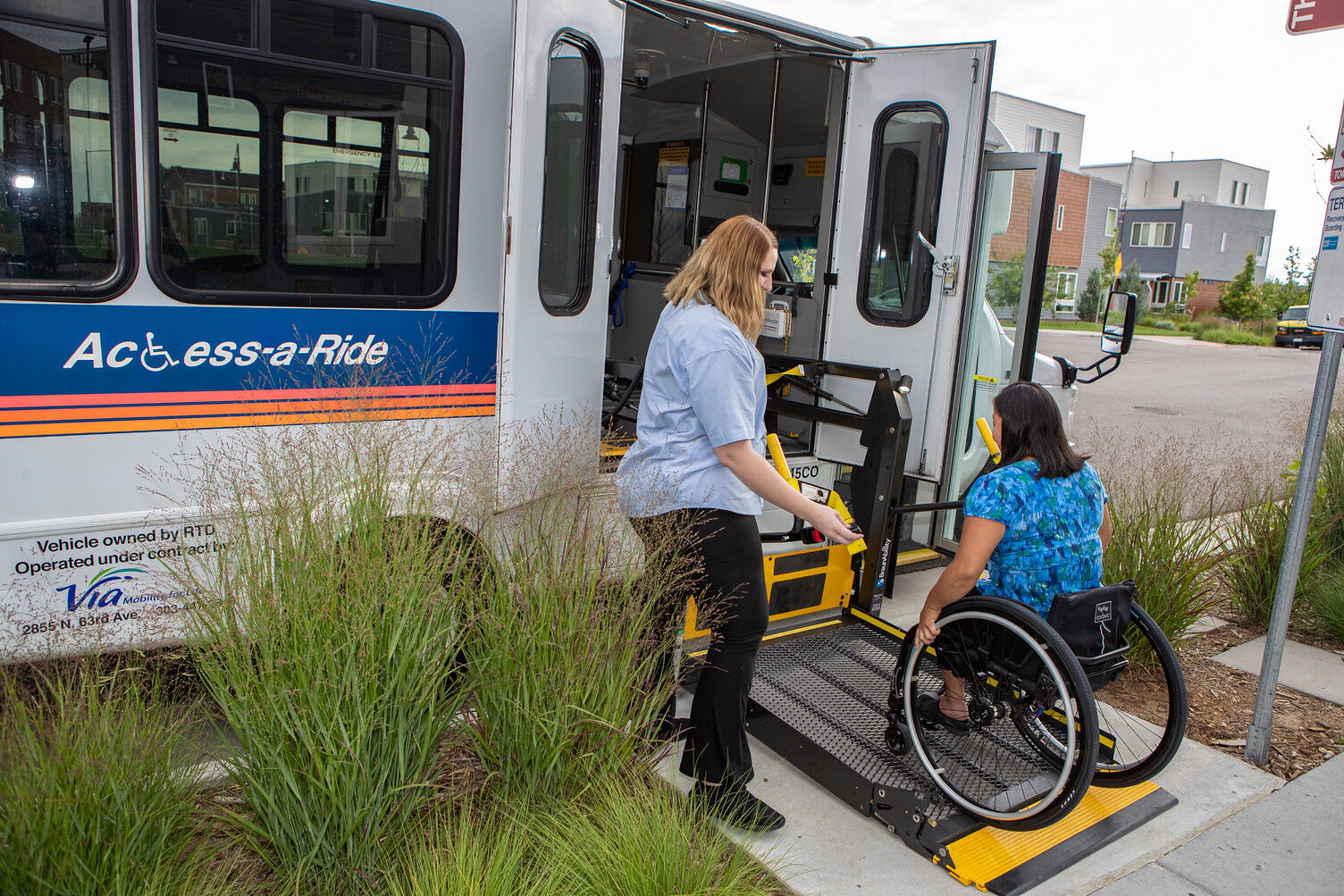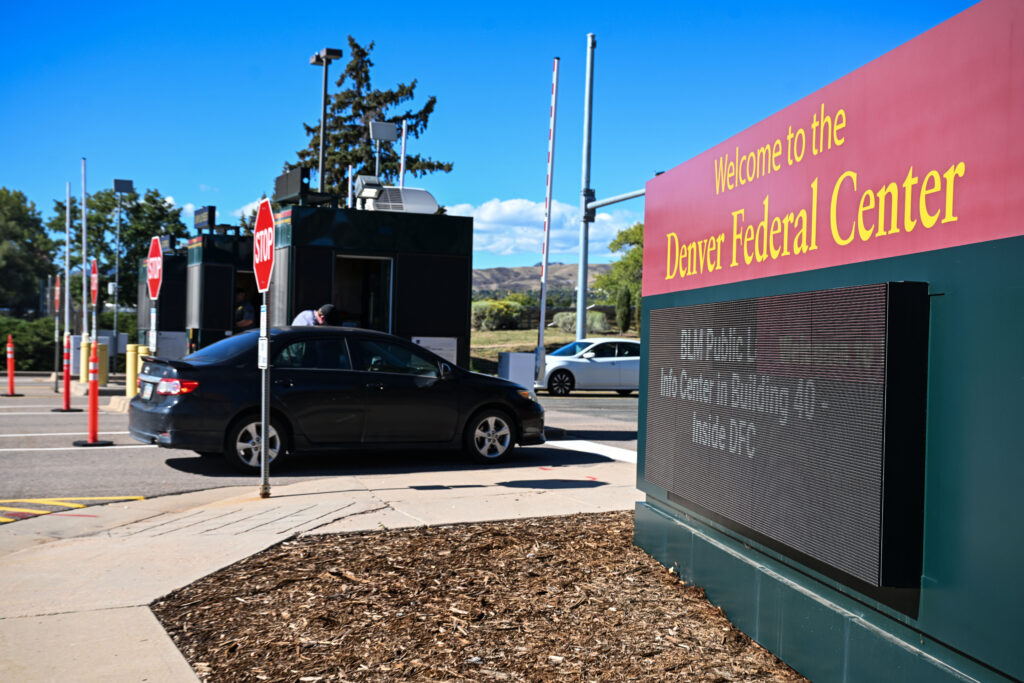RTD’s Access-on-Demand program survives, but fares jump from $0 to $4.50

About 30 speakers urged the RTD board not to end the program during a five-hour meeting
The Regional Transportation District Board held a five-hour meeting on Tuesday to discuss possibly canceling its Access-on-Demand transport program for the disabled due to budgetary concerns.
More than 30 citizen speakers, many of them disabled, flanked by Sen. Faith Winter, D-Westminster, exhorted the board not to cancel the service, which they say has been a boon to them and in many cases changed their lives.
“This 650% increased cost burden… will harm our community… Let the accountability (committee) do their work,” said Winter, calling for delay and more study of the fare situation.
The program, which started small, now costs the district $17 million annually as of 2025 — about 1.4% of the district’s $1.2 billion budget. The costs to provide the subsidy continues to increase at a rate of 3% per month, beyond $1.2 million in August, according to an RTD release.
In the end the board approved modifications in two 10-5 votes: first increasing the fare from $0 to a $4.50 standard fare and $2.25 fare for LiVE eligible customers per trip, matching Access-a-Ride’s rate.
The board then voted for a subsidy reduction to $20 per ride from $25, cutting two hours from the service day between 1:30 a.m. and 3:30 a.m., and expanding the coverage area to all of the agency’s districts.
RTD Board Director JoyAnn Ruscha of Northeast Denver released a statement Wednesday morning.
“The Regional Transportation District told taxpayers to override TABOR to save paratransit programs. Less than a year later, the agency betrayed the public when they moved to gut Access-on-Demand,” said the statement. “Disability rights are human rights, and this cruel decision was both an act of moral malfeasance and a dereliction of duty.”
The agency has been subsidizing up to 60 trips a month, which hasn’t changed. Customers pay the amount exceeding $20 and will still be able to book trips with up to two stops, such as dropping a child off at daycare and then going to work without incurring an additional base fare.
RTD’s CEO Debra Johnson, though not a board member, framed the changes as essential for viability, noting the program’s 306% budget increase since 2023.
Brittany Savage, who is blind, said: “Freedom is honestly what it means… Please don’t limit my freedom to be an independent person.”
This program mirrors a smaller taxi program that’s been in place since 1997, begun to comply with paratransit requirements of the 1990 American with Disabilities Act.
The agency started the Acces-A-Ride program in 2020 as a pilot program, during the COVID-19 pandemic, using Uber and Lyft. The initial charge was $2 (later waived to $0) and paid for up to $25 per trip. The Access-on-Demand program was intended to compliment the more rigid Access-A-Ride system by allowing rides to be booked on demand, according to the district.
“We want to ride, and we will fight for that just the way we fought for wheelchair lifts on buses… I wanted to scream tonight,” said Dawn Russell, a long-time advocate for the rights of the disabled. “We failed.”
In April 2021, the district enhanced the program by adding wheelchair-accessible capacity through Uber, addressing accessibility concerns for users needing mobility aids. By June 2021, the service area expanded to three additional ZIP codes, broadening reach while maintaining the pilot’s experimental nature.
The program’s success led to further growth: In January 2022, the program became available to all Access-a-Ride certified customers, and time-of-day restrictions were removed, enabling 24/7 availability at zero cost to users.
By 2023 the number of transportation providers contracting with the district included Uber, Lyft, Metro Taxi and zTrip. More than 60,000 rides per month were being provided by 2024. The number of active Access-on-Demand users has increased from 2,191 in October 2023 to 3,398 in August 2025, according to the agency.

















